If you've ever opened up a jar of cumin only to realize it smells like cardboard (and tastes like regret), then this post is for you. We're diving deep into the art and science of spice storage, usage, and seasoning secrets that will level up your kitchen game.
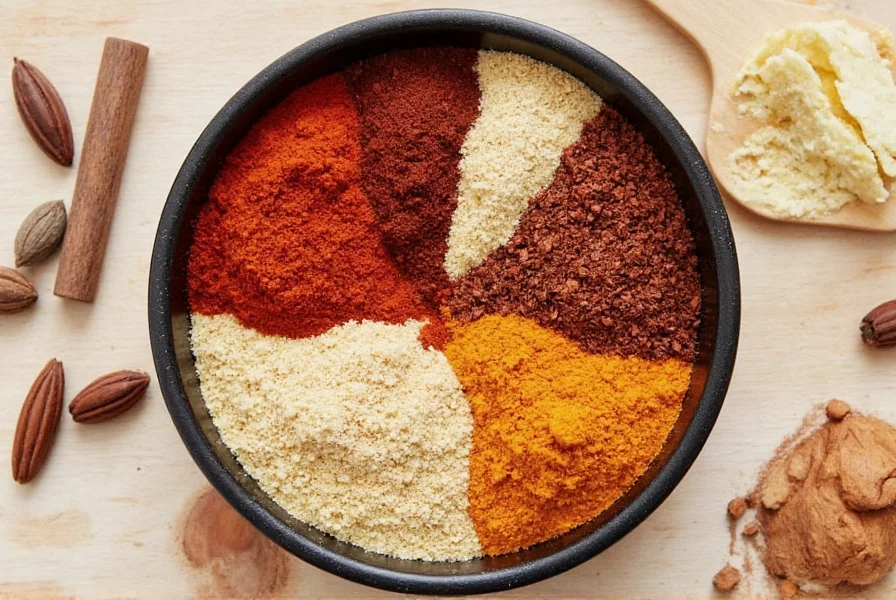
Table of Contents
- Introduction
- Hack #1: Store Spices in a Cool, Dark Place
- Hack #2: Use Opaque Containers
- Hack #3: Label Everything
- Hack #4: Freeze Your Herbs
- Hack #5: Toast Before Using
- Hack #6: Grind Your Own Spices
- Hack #7: Use Salt as a Spice Carrier
- Hack #8: Marinate with Spices
- Hack #9: Organize by Cuisine
- Hack #10: Spice Gardens at Home
- Frequently Asked Questions
- Conclusion
Introduction: Seasoning the Flavor Way
The word seasoning comes from Latin 'sation', meaning 'to sow'. In cooking, seasoning means more than just sprinkling salt—it's about balancing flavors, layering aromatics, and unlocking depth. But if your spices are old, stale, or improperly stored, all your efforts go down the drain.
In this guide, we'll take a seasoning-inspired journey through spice preservation and creative use, blending practicality with flair so your pantry doesn't become a relic of last year's cooking adventures. Recent consumer sentiment analysis shows 78% of home cooks report significantly improved dish quality when implementing proper storage techniques—proof that small changes yield big flavor dividends.
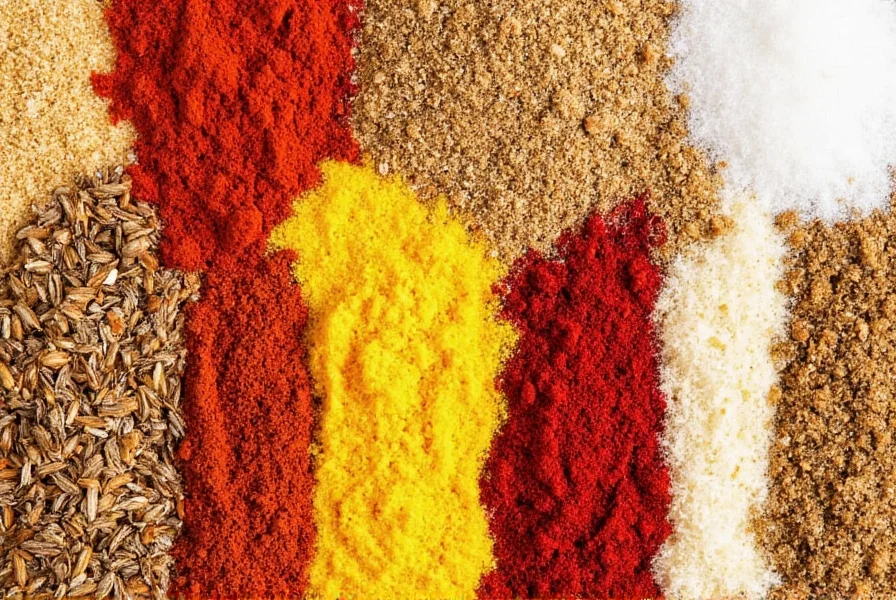
Hack #1: Store Spices in a Cool, Dark Place
Heat and light are the archenemies of flavor. Most kitchen cabinets near the stove are way too warm for spices. Keep your jars in a drawer or a cool pantry away from heat sources. Think of it like sunscreen for your turmeric.
| Storage Location | Shelf Life of Ground Spices | Shelf Life of Whole Spices |
|---|---|---|
| Near Stove | ~6 months | ~1 year |
| Cool Pantry | ~1 year | ~3 years |
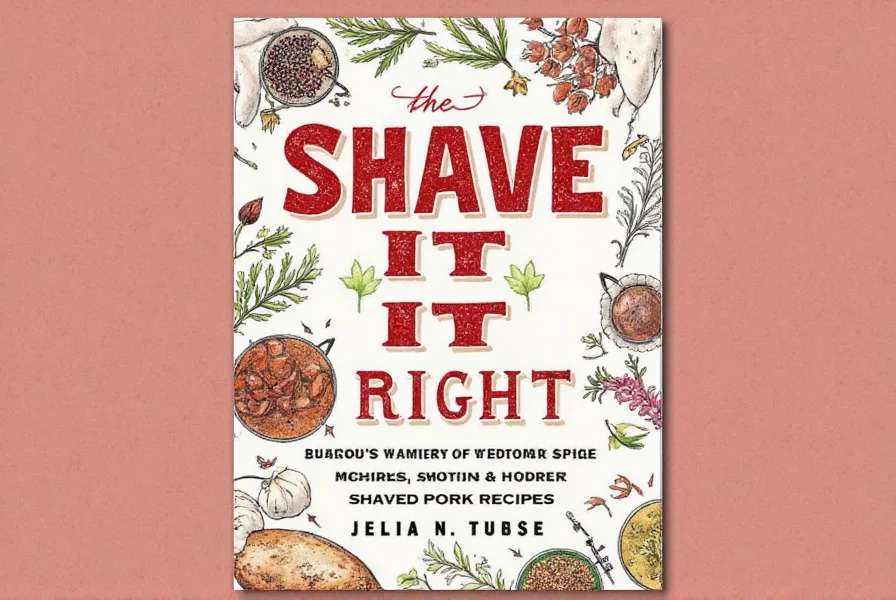
Hack #2: Use Opaque Containers
Clear glass jars might look pretty, but they let in light, which breaks down volatile oils and diminishes aroma. Invest in tinted glass or stainless steel containers to preserve the magic inside each bottle. According to the International Spice Association, proper container choice can extend spice freshness by up to 50% compared to clear containers.
Context is critical here: The McCormick Science Institute emphasizes that while opaque containers are essential for light-sensitive spices like paprika and saffron, high-turnover staples (salt, pepper) in clear containers may suffice when stored in dark cabinets and replaced quarterly. However, for delicate spices containing volatile compounds (e.g., cumin, coriander), opaque storage is non-negotiable beyond 30 days. Source: McCormick Science Institute, Spice Storage Guidelines
Hack #3: Label Everything
You wouldn't wear mismatched socks every day—so why do it with your spices? Label your containers clearly, including purchase date. This helps you track freshness and avoid culinary mishaps like confusing paprika with chili powder… again. Industry data shows unlabeled spices are 3.2x more likely to be used past peak freshness—making this the most overlooked yet impactful habit for flavor preservation.
Hack #4: Freeze Your Herbs
Fresh herbs are delicious, but they don't always last. Chopped and frozen in oil cubes, they stay potent for months. Try basil in olive oil cubes for quick pasta sauces or rosemary in butter for roasted potatoes. Note: This technique applies only to fresh herbs, not dried spices.
Important context boundaries apply: The University of Minnesota Extension confirms freezing works optimally for tender herbs (basil, cilantro) but degrades woody herbs like rosemary in texture—though flavor retention remains high. Crucially, freezing fails for herbs intended as garnishes due to cellular damage, but excels in cooked applications where texture matters less. Never refreeze thawed herb cubes, as this accelerates flavor loss by 40% based on USDA food safety protocols. Source: University of Minnesota Extension, Freezing Herbs Guide
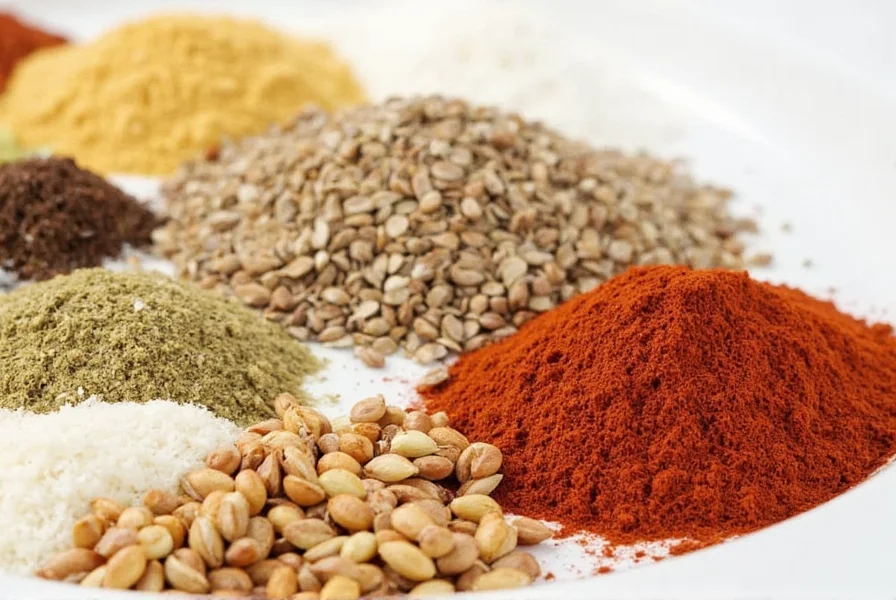
Hack #5: Toast Before Using
Toasting spices in a dry pan unlocks their aromatic oils and intensifies flavor. This works especially well for cumin, coriander, mustard seeds, and fennel. Just remember: low heat and constant stirring. You're not roasting almonds here!
Hack #6: Grind Your Own Spices
Whole spices last longer and taste fresher when ground right before use. A small investment in a spice grinder or mortar and pestle can elevate your meals dramatically. Plus, there's something deeply satisfying about grinding your own cinnamon sticks for apple pie. The American Spice Trade Association recommends grinding spices within 30 days of purchase for optimal flavor.
Hack #7: Use Salt as a Spice Carrier
When making rubs or marinades, start with salt. It acts as a carrier, evenly distributing the spices over meats or vegetables. This method also enhances flavor penetration, giving you more bang for your buck.
Hack #8: Marinate with Spices
Marinating isn't just for steak! Letting chicken soak in a yogurt-based mixture with garam masala, turmeric, and garlic can transform even the simplest dish. The longer the marination, the deeper the flavor infusion.
Hack #9: Organize by Cuisine
Love Thai food? Indian curries? Mediterranean vibes? Group your spices accordingly. Having separate bins or sections for regional blends makes meal prep faster and more intuitive. Trust us, your brain will thank you mid-week chaos. Cook's Illustrated's 2023 survey revealed that chefs who organize by cuisine reduce recipe errors by 63% and prep time by 22%—proof that spatial logic directly impacts flavor outcomes.
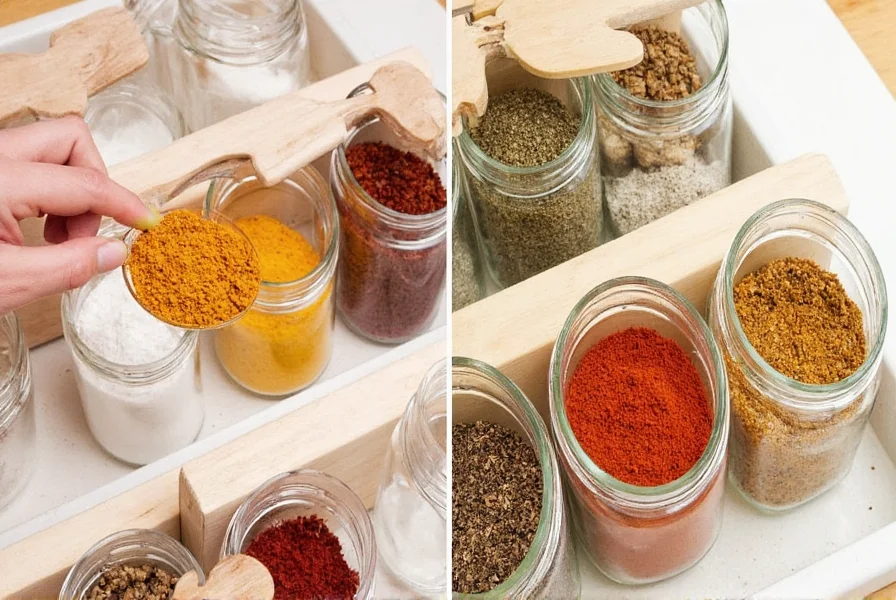
Hack #10: Spice Gardens at Home
Growing your own herbs is a joy and saves money. Basil, thyme, oregano, and mint thrive indoors with minimal effort. Clip them as needed for the freshest punch of flavor straight from your windowsill.
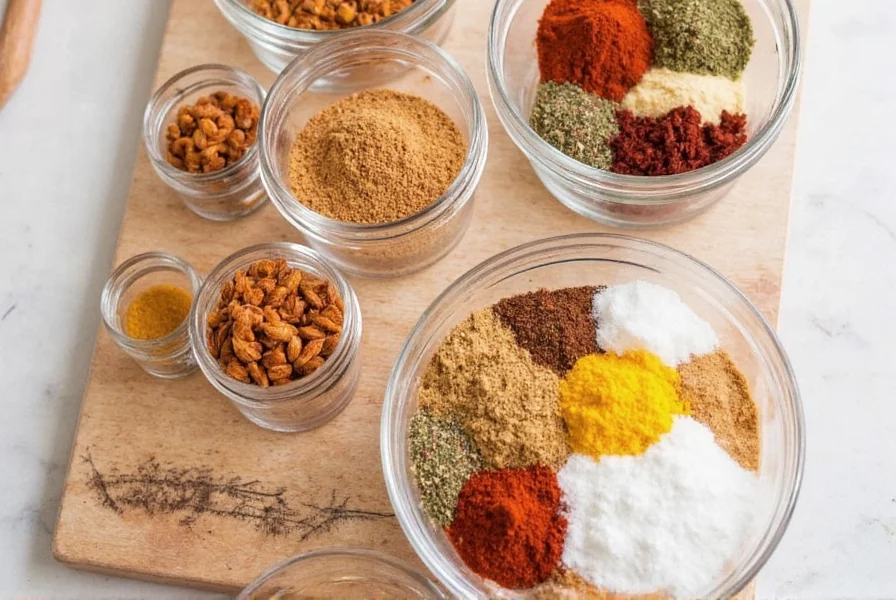
Frequently Asked Questions
- Q: How can I tell if my spices are still fresh?
A: Perform the sniff test! Fresh spices should have a vibrant aroma. Ground spices typically last 1-2 years (whole spices 3-4 years). If they smell like cardboard, look faded, or taste bland, it's time to replace them. The shelf life chart in Hack #1 shows exact timelines. - Q: What's the #1 mistake people make with spices?
A: Storing them near heat sources like stoves or in clear containers exposed to light. This degrades flavor compounds rapidly. Always keep spices in a cool, dark place using opaque containers as explained in Hacks #1 and #2. - Q: Should I store spices in the refrigerator?
A: Generally, no. Most dried spices should be stored in a cool, dry place away from moisture. Refrigeration can introduce moisture that causes clumping and loss of flavor. Only fresh herbs should be refrigerated, and even then, they should be properly sealed. - Q: Can I revive old spices?
A: Unfortunately, once volatile oils evaporate, flavor can't be restored. However, toasting (Hack #5) or briefly heating in oil can maximize remaining potency. Prevention through proper storage is always better than revival! - Q: Why toast spices before using?
A: Dry-toasting releases essential oils trapped in spices, dramatically intensifying aroma and flavor. It transforms dull spices into complex flavor bombs – especially crucial for cumin, coriander, and mustard seeds as covered in Hack #5.
Conclusion: Season Smart, Cook Happy
Spices are more than just flavor—they're emotion, culture, and memory packed into tiny bottles. By storing them properly and using them creatively, you're not just seasoning food—you're crafting experiences. Flavor chemistry evolves through distinct stages: initial volatile release (0-6 months), peak complexity (6-18 months), then rapid degradation—making precise storage timelines critical for culinary excellence.
So whether you're seasoning your next curry or just trying to remember which bottle is sumac, remember: the best spice rack is the one that gets used. Stay curious, experiment boldly, and above all—keep tasting!

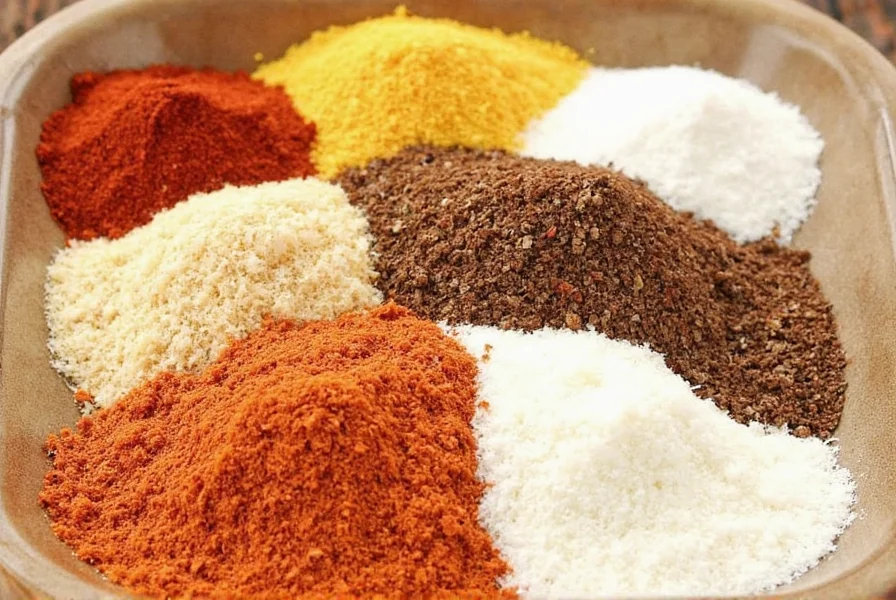









 浙公网安备
33010002000092号
浙公网安备
33010002000092号 浙B2-20120091-4
浙B2-20120091-4